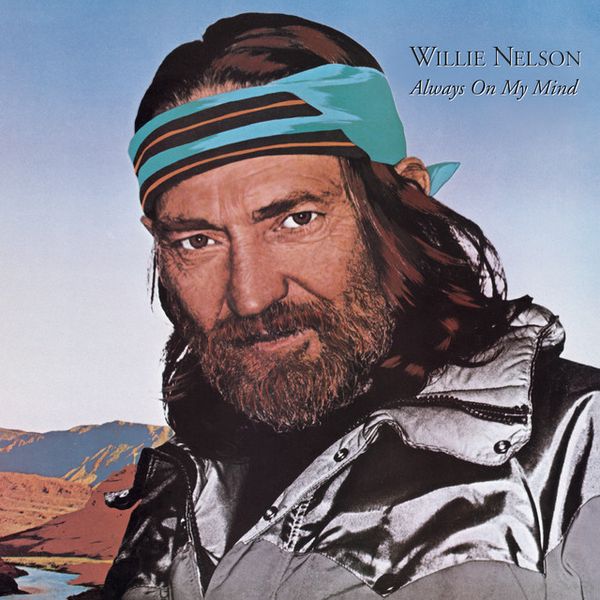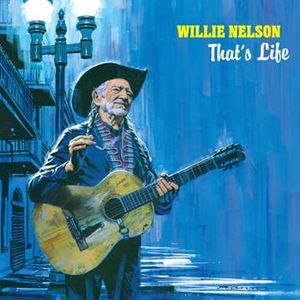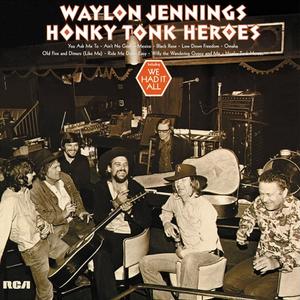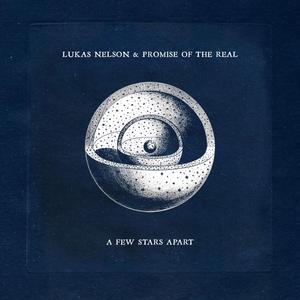
Willie Nelson - Always On My Mind
By Mark Hagen
As with all of Willie’s albums, there are things to love here. It also remains a fascinating look at an artist trying to work out his place in the world.






Link copied


Forty years ago, Willie Nelson was beginning his ascent to the top of the country charts with the song that would become his biggest ever hit. Released in the March of ’82, Always on My Mind – already a staple hit for Elvis Presley a decade before – hit the top spot in May, staying on the charts for 21 weeks.
It was the best-selling country single of the year, collecting the CMA Song of The Year in both 1982 and 1983 and winning three Grammys, including the Best Country Vocal for Nelson. Clearly, people liked it, but they enjoyed its parent album even more.
Also titled Always on My Mind, the album spent five years on the Billboard Country Album Chart, effectively opening up a whole new phase for Nelson in the process.
Since 1978, Nelson had struggled to match the genre-busting success of his album Stardust. By some distance the biggest album of his career, he followed it up with an eclectic mixture of film soundtracks, collaborations, gospel music, western swing and a Christmas record. They were generally well-received and sold respectably, but they weren’t really the thing.
That turned out to be 1981’s Greatest Hits (And Some That Will Be), a twenty track-double album that summed up Nelson’s career up to that point. It remains the single best introduction to his work on the market today.
The thing about huge selling compilation albums – particularly ones that dominate the charts for most of the year - is that for the artists concerned, they serve two purposes: as an end and therefore a beginning. They give you artistic pause, a chance to reflect, to reconsider and to redefine what you might want to do in the next phase of your career.
For Nelson, that came during the preparation of his 1983 classic with Merle Haggard, Pancho & Lefty. The producer, Chips Moman, suggested that the pair record ‘Always on My Mind’ - Haggard rejected it outright. Willie disagreed, going ahead with his own solo version, inadvertently making a start – albeit unknowingly – on his next project.
Looking back at this moment in his autobiography, Nelson recalled; “We’ll never know what would’ve happened if Merle had really heard the song right. ‘Always On My Mind’ bowled me over the moment I first heard it, which is one of the ways I pick songs to record”.
With that in mind, Nelson and Moman went straight into the studio to try and capture lightning in a bottle for a second time. On Stardust - while working with Booker T Jones of MGs fame - Willie had taken a set of tunes from the Great American Songbook and recast them in his own image. This time around, they would try to do the same thing to songs from two different genres entirely: rock and soul.
The impetus for this came from Moman himself. The Georgian had cut his teeth on the road in the 1950s touring with Gene Vincent and Johnny Burnette, before relocating to Memphis to work with the nascent Stax operation. A financial falling out with founder Jim Stewart led to Moman setting up his own studio – American Sound – in the Bluff City and forming a long-lasting partnership with songwriter Dan Penn, both of which would pay dividends in the years that followed.
In late 1971, Moman was the first person outside its writers to hear Always on My Mind. It had actually been composed in his office by Wayne Carson, who was recording at American Sound at the time. Chips felt the embryonic tune needed a bridge, the duo turning to session musician Mark James – then on the American Sound payroll – before Moman recorded the finished demo. It’s hardly surprising then that the song sprang to mind during the sessions for the Haggard and Nelson project, nor that Chips would aid and abet in Willie’s own solo version.
With the song in the can, the producer and artist began to search for other material in the same vein, quickly hitting on the idea of transforming rock and soul standards by applying Willie’s country sensibilities to them, while filling out the album – as was common – with remakes of songs from Nelson’s illustrious past.
As before, the commercial logic was astute – attract the rock and pop audiences through the songs and the country audience through the sound. This time though, something didn’t quite gel, and although Always On My Mind successfully established a new pattern for Willie’s future career – and certainly paid dividends in the marketplace – artistically it remains a bit of a failed experiment.
Perhaps that was down to the songs. Procol Harum’s A Whiter Shade of Pale was certainly an intriguing, nay bold, choice; seeing that on the tracklisting might well have piqued the interest of the casual rock fan, but its execution is timid, tentative and not entirely convincing. Did the world need to hear Waylon & Willie skipping the light fandango and turning cartwheels across the floor in a slightly puzzled way? It did not.
Conversely, the album’s other big track – a cover of Simon & Garfunkel’s staple ‘Bridge Over Troubled Water’, works precisely because of its limitations. Vocally, Nelson is nowhere near in the same league as Art Garfunkel, while the grandiose production of the original is conspicuous by its absence. Yet stripped of the habitual showboating, this fragility gives the song a vulnerability it never possessed before, making this version one of the few total successes on the album.
The other, of course, is the title0track, which benefits enormously from the musical contribution of its co-author Johnny Christopher and from the presence of several other players with first-hand experience of its creation. Again, Nelson’s version loses the bombast of both the Presley and the Pet Shop Boys versions to deliver as sincere and classy an expression of regret as you’re ever going to get. It’s terribly British, in fact…
The rest of the album drifts past in a pleasant sort of way. ‘Let It Be Me’adds nothing to the Everly Brothers version, while opener ‘Do Right Woman, Do Right Man’(authors - C. Moman and D. Penn) only serves to demonstrate that yes, you can make a country song out of an Aretha Franklin hit - but Gram Parsons and the Flying Burrito Brothers did it first and did it better.
Of the others, the Nelson originals ‘Permanently Lonely’and ‘The Party’s Over’are the most rewarding, but the modern-day listener will struggle to hear just why Always on My Mind was as commercially successful as it was.
That’s not to say it should be dismissed entirely. As with all of Willie’s albums, there are things to love here. It also remains a fascinating look at an artist trying to work out his place in the world.
7/10.
Willie Nelson's Always On My Mind was released via Sony Music Entertainment. The record is part of an exclusive, remastered boxset from Holler's friends at Vinyl Me Please. You can purchase this below:

Items featured on Holler are first selected by our editorial team and then made available to buy. When you buy something through our retail links, we may earn an affiliate commission.,
For more on Willie Nelson, see below:





